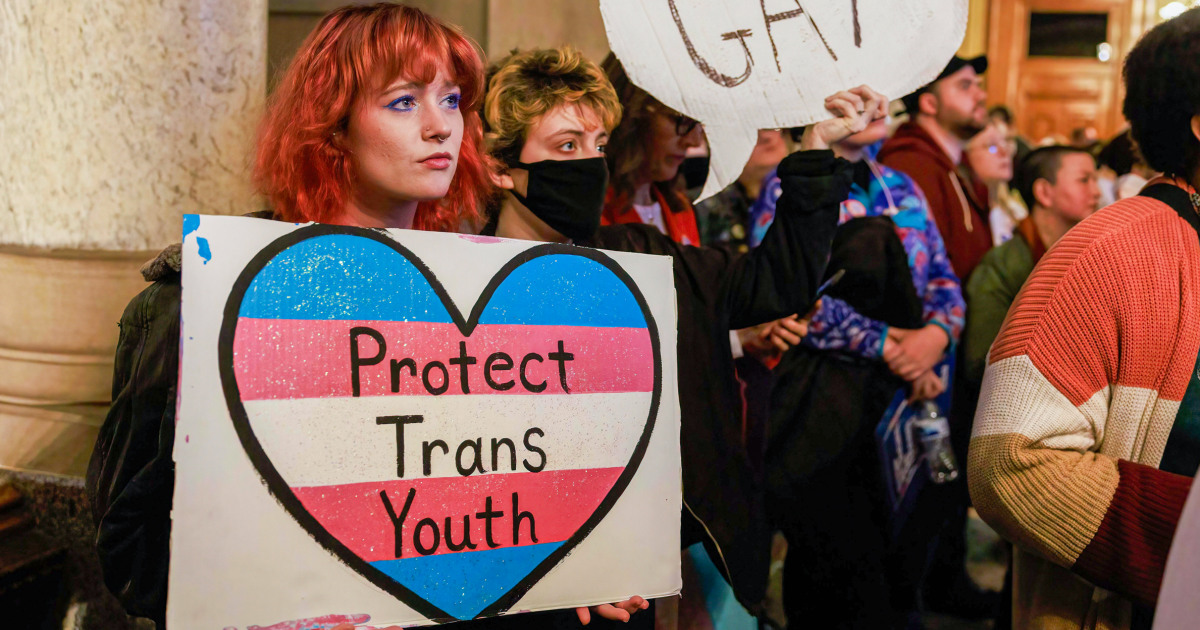
A federal appeals court has upheld an Indiana law banning the use of puberty blockers and hormones for transgender children under the age of 18, one of numerous such laws passed by Republican-controlled states.
The 2-1 decision from the 7th U.S. Circuit Court of Appeals on Wednesday comes as the U.S. Supreme Court prepares to hear a challenge to a similar law in Tennessee, which may ultimately determine whether all such state laws around the country can be enforced.
The 7th Circuit had already allowed the law to take effect in February while it considered the challenge by families of transgender children and healthcare providers, reversing a lower court order blocking it.
Indiana Attorney General Todd Rokita wrote on X that the decision was “a huge win for Hoosiers and will help protect our most precious gift from God — our children.”
The American Civil Liberties Union, which represents the plaintiffs, did not immediately respond to a request for comment.
The plaintiffs argued that the law discriminated on the basis of sex by prohibiting certain treatments based on the patient’s sex. They also said it interfered with parents’ right to direct their children’s medical treatment.
Circuit Judge Michael Brennan, writing for the majority, rejected both arguments. He wrote that the law “bars gender transition procedures regardless of whether the patient is a boy or a girl.”
He also said that parents did not have a right to obtain any medical treatment for their children. That argument, he said, implied “a path to demand for their children access to a narcotic for a well-meaning medical purpose” even if a state has banned the narcotic.
Brennan, who was appointed by Republican former president and now president-elect Donald Trump, was joined by Senior Circuit Judge Kenneth Ripple, an appointee of Republican former president Ronald Reagan.
Circuit Judge Candace Jackson-Akiwumi, who was appointed by Democratic President Joe Biden, dissented, citing “the same compelling reasons explained by dissenting judges around the country” in similar cases, like the 6th Circuit’s ruling upholding Tennessee’s and Kentucky’s laws. Dissenting Circuit Judge Helene White in that case wrote that the bans “intrude on the well-established province of parents to make medical decisions for their minor children.”
The use of puberty blockers and hormones to treat children with gender dysphoria, or distress resulting from an incongruence between a person’s gender identity and the sex they were assigned at birth, has been banned or restricted in 26 states.
Proponents of such laws say they protect children from experimental and unproven treatments. Supporters of the treatments, including the American Academy of Pediatrics, say they reduce suicide attempts and improve mental health.
The case is K.C. v. Individual Members of the Medical Licensing Board of Indiana, 7th U.S. Circuit Court of Appeals, No. 23-2366.






